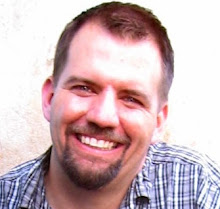
I came across a superb documentary from the BBC on what it means to live on a dollar a day in Kenya. The web page for the documentary is here, and the MP3 file is here. A related article is here. The documentary was made in 2005 -- but is still very relevant and timely.
Although the documentary focuses on a rural area in western Kenya, rather than the urban life in Nairobi where Tenderfeet kids live (see photo), it still gives tremendous insight into the real people facing extreme poverty.
As you listen, please notice how these victims of poverty are articulate, hard-working, and extremely concerned about the wellbeing of their families. This has also been my experience.
Regarding developmental programs and foreign aid, overall these things are a positive for people. Hospitals, schools, and public transportation are available that would not be without the investment of foreign aid. And poor people do sometimes go to the doctor, have kids that get educated, and are able to get back and forth to work.

However, all these things cost money, and often are such a financial burden that it can be an incredible struggle to eat three meals a day with the money left over.
In other words, foreign aid can and does improve life for the country as a whole, but the individual poor families often suffer as they fall in between the cracks.
What level of responsibility do these families have for the circumstances they find themselves in?
For instance, do I wish parents would choose to have fewer children so that they could better support the ones they have? Absolutely. Do I think every parent or guardian of a Tenderfeet child always makes good decisions for the long term? Of course not (although I would also ask -- what parent anywhere doesn't sometimes make bad decisions?).
About the role of adults in making decisions, two points can be made. First, the children are innocent of the decisions made by their parents. Second, the best way to ensure the children will make better decisions when they grow up is to educate them.
Finally, based on what I've seen and learned, I believe that for most people living in extreme poverty (at least in Kenya), no matter how hard they work or how clever they are, they are still essentially trapped. The opportunity to achieve one's dreams we see in the United States and other industrialized nations is just not there. The barriers are way too high for the vast majority.
But we still keep working to change all that at Tenderfeet, and education is a great place to focus in attacking the problem.








